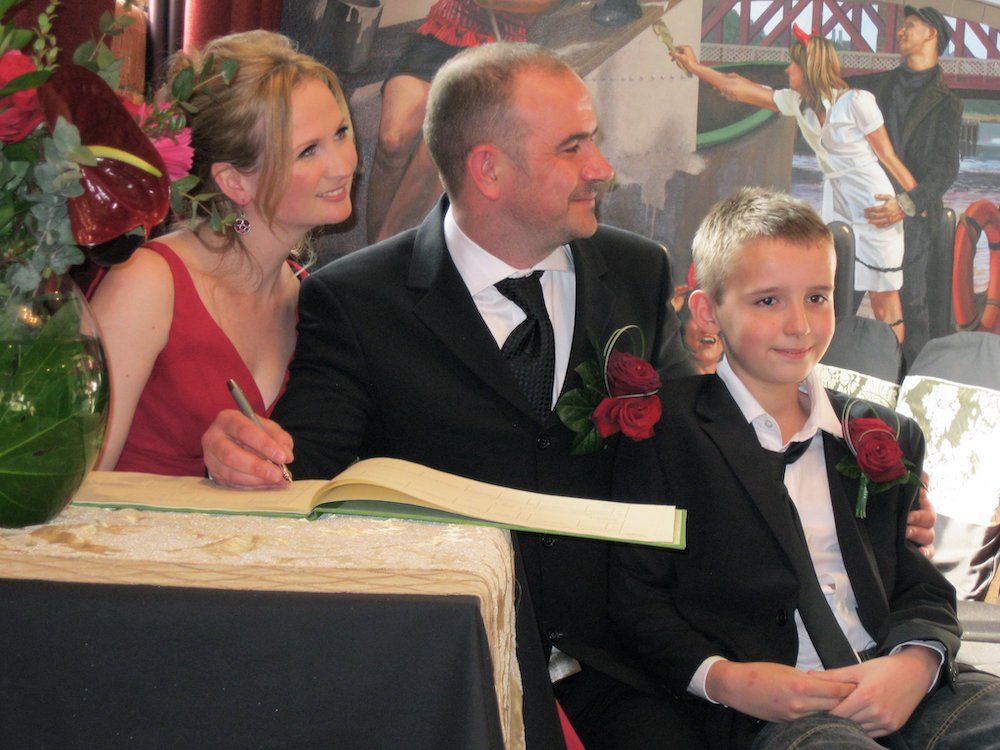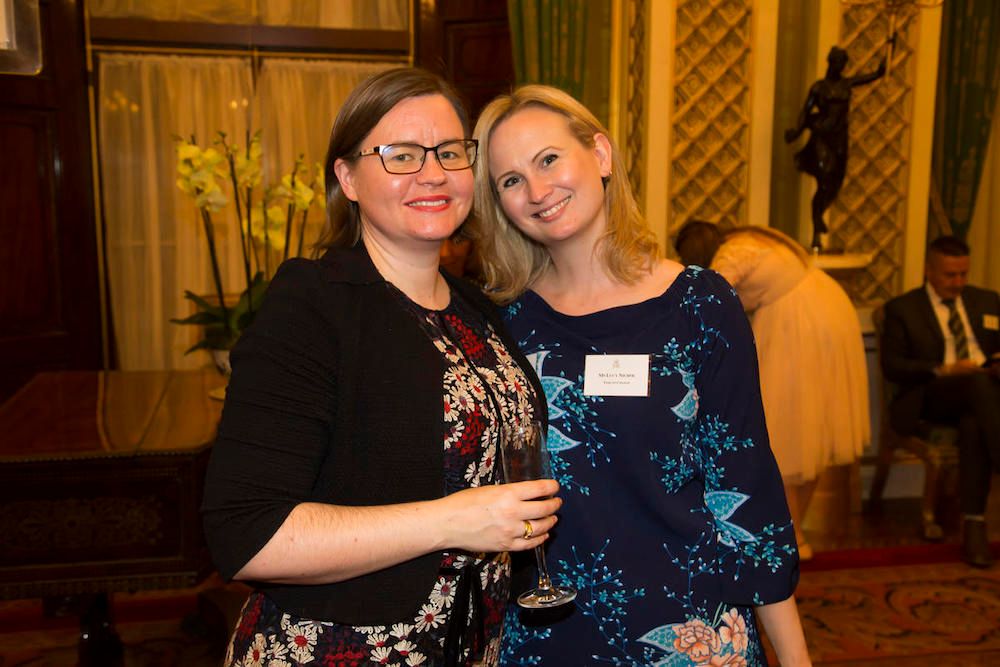Lucy spent 40 years trying to pretend her shyness and anxiety didn’t exist. In embracing them, she’s finally becoming more content with who she is
Who else has that dream where you’re trying to run somewhere, but you’re battling some kind of invisible force that won’t let you get there? Your limbs are flailing frantically but, despite the effort and attitude, you’re simply not moving.
It pretty much sums up life for someone like me, who has anxiety and low self-esteem.
But it’s not cool to be shy is it? Being the only kid at the Sooty Show who refused an invitation on to the stage was both relieving and devastating at the same time. Not everyone gets to meet TV’s famous yellow bear.
I was as silent as Sooty throughout my earlier life. I was the child at a family wedding who wouldn’t utter a word.
The teenager who wouldn’t leave the dance floor because she didn’t know how to converse at the bar.

Lucy with her husband, Chris, and her stepson, Sam, on her wedding day
As an adult, my shyness made me appear snobby and aloof. And besides, I honestly couldn’t hold a conversation with strangers. Being drunk and indifferent seemed so much easier than being rejected. Or tripping over my words. Or being found out for being shy.
I had a great circle of friends, but I never felt good enough. It would only take one wrong, unexpected question to ‘out’ my social awkwardness.
I had some pretty outgoing friends and so I wanted to be the most outgoing. The most noticed. The one who took up the most space on the dance floor when The Prodigy came on.
And it’s kind of followed me into my grown-up world. Although these days I’m more likely to be found running to ‘Smack My Bitch Up’ rather than dancing to it in a nightclub.
I was always super-slim when I was young. But recently I was filling out – you know, like a woman does. Visiting old friends only to find out that they’d all lost weight while I had piled it on (in my mind) made me seethe.
And what if I got a job at manager level, but a friend was working at director level?
My hair was thin and my skin pasty white; my sister’s hair was thick and her skin a lovely olive.
Alongside all of this – worries about ‘performing’ socially, looking good, and achieving enough professionally – I endured phases of panic and anxiety.
The health anxiety was pretty severe. It landed me in A&E and at emergency walk-in centres several times.
If I was swimming, I could feel my heartbeat. If I was sitting, I could feel my heartbeat. If I was cooking, watching TV, catching the bus, or heading out on a run, I could feel my heartbeat.
Embrace all the parts that make you who you are
Now, if I’m not mistaken, that’s a good thing. But for me, it was a sure sign of a heart problem, an imminent heart attack. A sense that my circulatory system was rapidly failing hung in the air and followed me like a persistent hawker, trying to sell me the idea of death.
My anxiety became less fussy over the years. It wasn’t all about health. It could be about my husband being in a car crash, my cats getting locked in the washing machine, or panicking that I’d over-shared. Again (and yet, here I am…).
So fast forward to the final year of my 30s. I was seeing this new counsellor, and he suggested I embrace the beige in life and see that being just OK is a good thing, and that being great is the cherry on top of the cake.
Of course, a relentless drive for perfection not only wastes time (because it’s impossible to find it) but it also makes you behave like a bit of an idiot. Contrary to my in-built beliefs, an overwhelming confidence is not what makes you endearing.
I am now going to harp on about something I have harped on about many times in my book and in my blog. It was the time I met blogger and author Claire Eastham, who has social anxiety.
She sat there at a ‘Time to Change’ event, looking effortlessly cool. And I thought: “I wish I was like that.” And then she stood up and said: “I have to tell you, I am absolutely shitting myself.”
And I liked her more and thought, I can be like that.

Lucy with Jo Kawalski from Time to Change, at Buckingham Palace on World Mental Health Day 2017
So let me tell you something, when you embrace all the parts that make you who you are, like Claire was doing that day by admitting she was nervous as hell, the anxiety levels drop.
Early in my career, I would sometimes give talks about the theatre company I worked for. I always wanted to appear strong and confident. But I had this terrible obsessive thought before and during all speeches that I was going to pee my pants.
So, this year, for my book launch, rather than pretend I was going to give this cracking performance as a self-assured woman, I told the store manager that I was scared of peeing myself. I said if it took over my mind, I would weave it into my anxiety story and escape to the loo for two minutes. She was fine (my book, after all, is about anxiety).
Of course, I got through the whole event with no nervousness whatsoever. Because I wasn’t pretending to be something I’m not. I was sharing my flaws rather than trying to hide them. Oh, the relief!
Something else that happened when I hit 40, too. I stopped wearing so much make-up. It’s as if turning 40 gave me some kind of validation that I could be who I am and be OK with that.
And that’s the thing, I guess. I still have days where I obsess about things I shouldn’t – my weight, my appearance, how I come across in social situations – but it happens less and less. I can now comfortably admit to friends how awkward I used to be, and it feels so much better.
Being imperfect makes us who we are. It makes us unique. And more often than not, it’s those little imperfections that make people love us, too – although my rendition of Bonnie Tyler’s ‘Total Eclipse of the Heart’ is perhaps pushing my husband’s love to the limit.
Imperfection. Embrace it. Life’s far less exhausting when you do.
Fe Robinson | MUKCP (reg), says:
Lucy emphasises the importance of being able to see the many different aspects of yourself, and to embrace them all. Perfection is an illusion; being real is far more engaging, both for yourself and for those you come into contact with. I appreciate Lucy’s focus on accepting her anxiety, accepting herself, and accepting things as they are. It is a freeing message that I hope readers will take on board, and use to energise themselves, too.


Comments